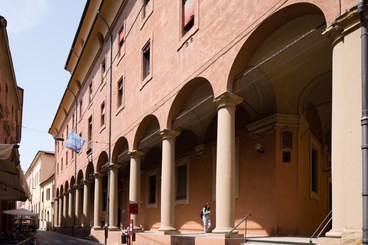
The Centre
A brief history of the Centre from its founding to the present
Starting in 1989, the Centre has a long tradition of inter-departmental and inter-university research, as well as collaborations with national and international universities, institutes and research networks. Since 2013, it has become departmental, maintaining its headquarters at LILEC. The Centre’s main purpose has always been to conduct interdisciplinary research on utopia, dystopia and science fiction, through various actions and initiatives. These include the establishment of a specialised online and print library to collect and circulate volumes and research on the Centre's themes, producing translations of relevant texts, organizing cultural initiatives such as conferences, seminars and study days, hosting researchers, scholars and doctoral students, as well advising on related research, especially research being conducted by the student community. Additionally, the Centre collaborates with the teachings of the Erasmus Mundus Joint Master’s Degree GEMMA - Women's and Gender Studies, the international project EUTERPE: “European Literatures and Gender from a Transnational Perspective” EU Research Framework Programme HE / MSCA (Grant Agreement number 101073012), and the 'Critical Utopia' (LILEC) teaching courses. The Centre also participates in public engagement projects that promote human and civil rights and stand against gender-based violence. The Centre’s diverse areas of research include utopia, dystopia, speculative fiction, science fiction, new gothic, and horror, and the intersection of these genres with gender studies, intercultural studies, the global novel, transmedia studies, and new humanities. In alliance with other UNIBO centres, the Centre also aims to foster public engagement by supporting research projects and teaching courses on utopia, hosting scholars from different countries, and fostering cultural exchanges. The Centre was initially directed by founder Vita Fortunati, followed by Giovanna Franci and Roberto Vecchi. Since 2013, the director of the Centre is Rita Monticelli.
The Centre is a partner in numerous national and international research projects.


